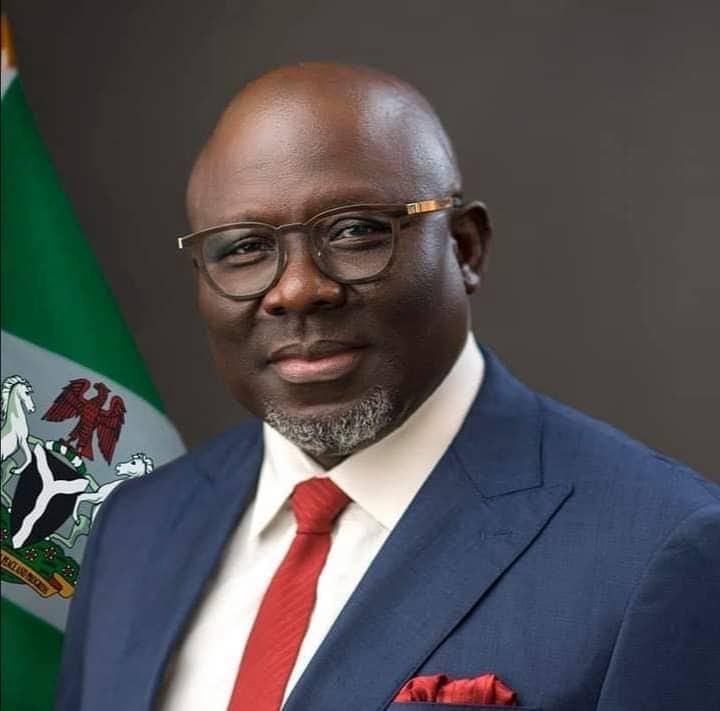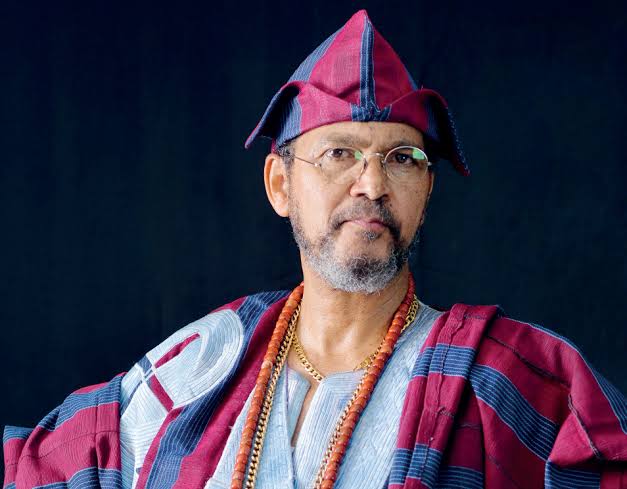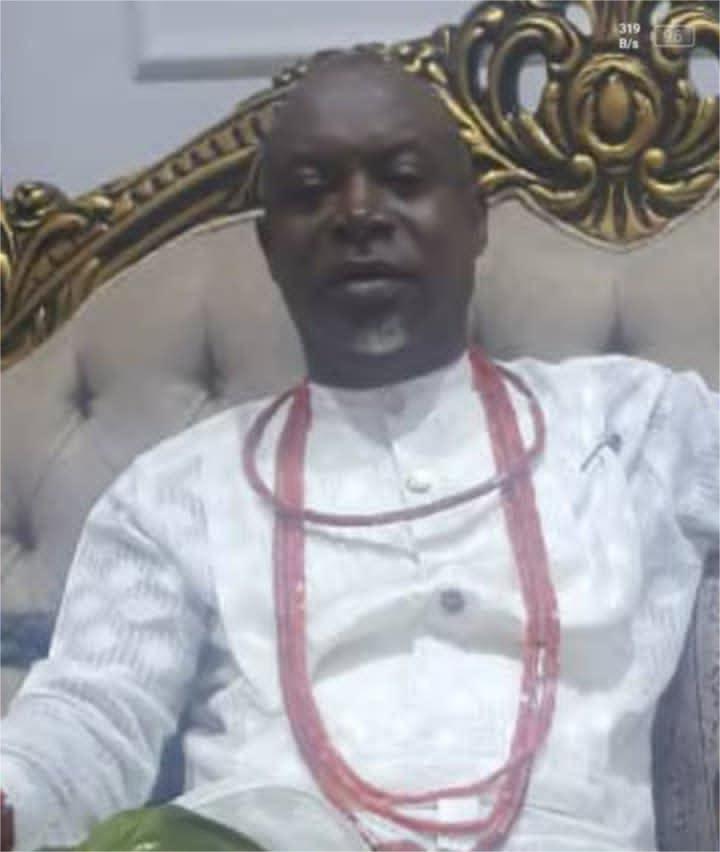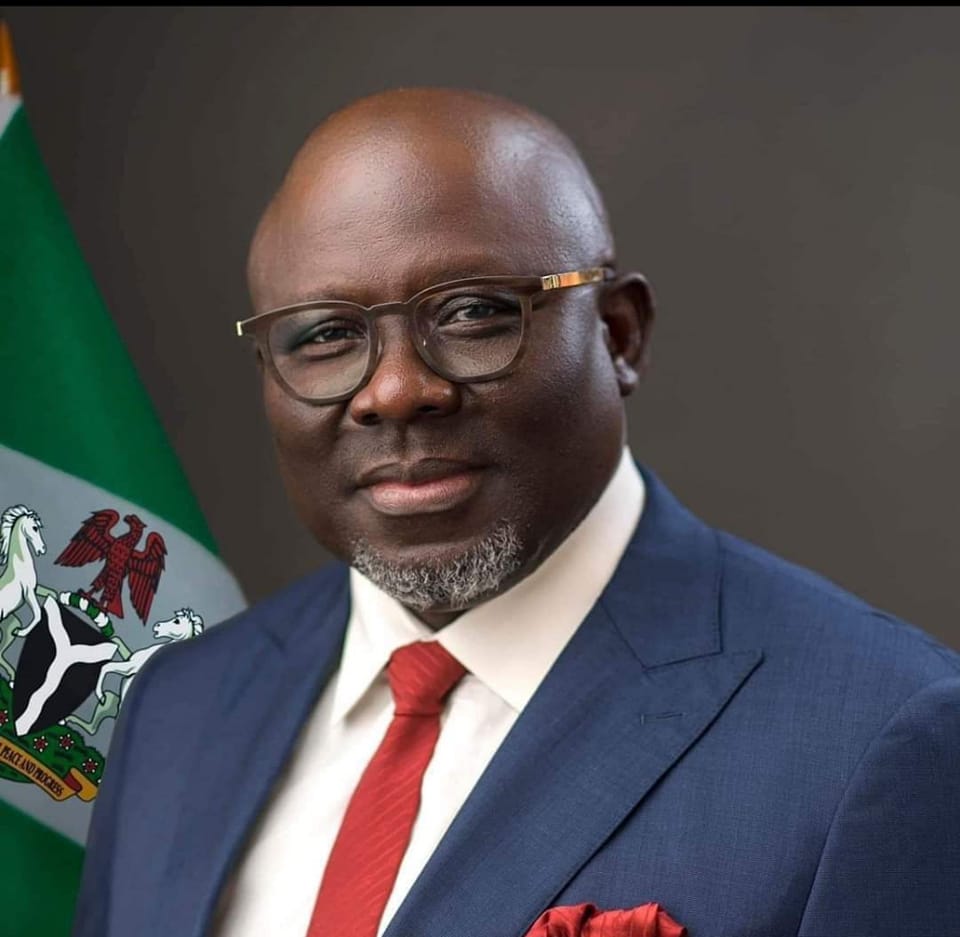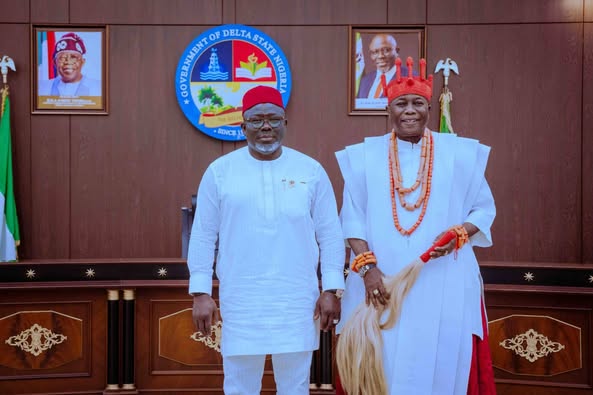THE KEY ISSUES IN POWER DYNAMICS IN UDU KINGDOM

By Joseph Edafekibuebu
Udu is one of the twenty - four kingdoms in Urhoboland, and it enjoys the monolith status of one kingdom and local government area. One outstanding feature is that the Ovie of Udu is one of the longest-reigning traditional rulers in Delta State and the oldest in Urhobo land, having been crowned 30 years ago, precisely in May 1994. The current Ovie, His Royal Majesty, Bethel Delekpe, Owhoru 1, is the first traditional ruler of the kingdom after many years of operating as a clan under the guidance of a regent, who doubles as Otota.
The Udu people take pride in their King, who symbolizes unity (Uduovo). In recent years, however, there appears to be a standoff in the Kingdom. Several factors have been attributed to the cause of this impasse, thereby creating different camps of interest across the area. More recently, some of these interest groups seemed to have united in pursuit of collective objectives.
The Power Play in Context
Every system has mechanisms for balancing power, without which there could be collapse. As a renowned philosopher rightly noted, absolute power corrupts absolutely. Hence, checks and balances have become a key component of human existence, especially in a constitutional democracy. Human physiology itself has such elements of control, playing different roles and making it possible for the whole system to function optimally or subpar. More so, in oral anatomy, there are times when the teeth and tongue differ in positions. This divergence sometimes results in pains caused by the teeth empowered by the crown. The consequence therefore is felt by the whole body which receives constant pressure from the brain.
As Urhobo musical legend, Chief Ogute Ottan rhetorically opined in one of his works, if these two elements fight, who will resolve them? Fortunately, Governor Sherriff Oborevwori, in the case of the conflicting interests in Udu, has intervened in the deadlock and has resolved it halfway. The first half was the dissolution of the factional leadership of the Union of Udu Communities (UUC). While the foundation of the controversy in Udu is unknown, the UUC leadership controversy brought to the forefront the underlying power play in the kingdom. Although there were justified reasons why the majority of Udu people, including key players in the Palace massively supported Chief Austine Emaduku as the UUC President General, the election provided an opportunity for these interests to underscore the lack of wider consultation. As it turns out, other prevalent issues were undercurrents, including the sanctity of the 1979 edict, the reconstitution of the Udu Traditional Council (UTC), the Conferment of Chieftaincy titles on deserving Udu indigenes, and the equality question. In addition to the dissolution, the state government directed the reconstitution of the traditional council.
The 1979 Edict
Recently, there were reports of attempts to jettison the 1979 edict that established Udu Kingdom and which also defined the governance structure and practices. The reports suggested that some persons had initiated steps to adopt a primogeniture process of ascension to the Udu throne, in contravention of the edict, which provided for an ascension order among the seven ruling houses, a key compromise in the formation of the kingdom. When this information filtered into the communities, it frayed nerves to the extent that a countermove to balkanize the kingdom was mooted while some elements felt the situation was surmountable. Accordingly, the latter group led by some prominent Chiefs took the bold step to caution against any attempt to undermine the edict and by extension the unity of the kingdom. This audacious move helped to stem the tide and refocus the ship for a smooth sail, albeit temporarily.
Equality Question
There is no gainsaying that there is displeasure with the way and manner some communities and individuals have been categorized and accorded respect in the scheme of things. Allegations that the father of the kingdom has publicly addressed some communities as strangers and undeserving of royal privileges have threatened the unity of the constituency. These communities have alleged bias and unfair treatment, including during dispute resolution. They have expressed their concerns and have tried to leverage available platforms, including the courts of kings and law to demonstrate their frustration. At some points, they are threatened to exit the kingdom and create one for themselves if they do not share equal privileges and rights with other Udu communities.
Reconstitution of UTC
Over a long period, there have been calls for the reconstitution of the Udu Traditional Council (UTC). The Council is a critical organ in the administrative structure of the kingdom. The absence of a duly constituted council meant essentially that the kingdom was not functioning properly. Nonetheless, moves to have the council reconstituted were resisted by those who feared that the influence of the Ovie might be overshadowed by a formidable Council, as was the case of the first council. The first one was composed of powerful and influential figures, some of whom were instrumental to the creation of Udu kingdom and the ascension of the Ovie. Although the council members at the time venerated the King, it is believed that the monarch could not throw his weight around on many issues, a situation that dampened some of his lofty ideas. Consequently, since the decimation of the Council following the death of its members, a school of thought believes that only persons considered to be loyal to the Palace have become conferred with titles and have been granted privileges to play prominent roles in the kingdom, to the exclusion of other worthy Udu sons and daughters. The proponents of the immediate reconstitution of the UTC believe that the absence of a duly constituted Council has caused inadequate representation for some communities and a lack of robust consultation and direction for the kingdom. At the moment, following the directive of the state government, efforts are underway to reconstitute the Council.
Implementation of the Governor’s directives
Following the stakeholders’ meeting in Otor-Udu, the capital of Udu, parts of the communique were the reconstitution of the traditional council and the formation of an interim UUC leadership. As can be seen, a controversy seems to be brewing over who has the authority to implement this directive. While it was reported that communities should nominate candidates through the local government chairman, there are speculations in some quarters that the Governor has directed Ovie to personally appoint his people to form the council and the UUC leadership. Although all communities except for those under the Owhorhu ruling house have openly published their candidates to the Local Government Chairman, it appears that another episode in this series of controversies is yet to unfold. The nomination process has not been without controversies as those who lost out at the community level are fighting to ensure that their names make it to the final list. As the clouds are forming, it seems that the nominations would have to go through the Palace to the state government for endorsement. Another interesting as of the series is that the names of the three nominees in Aladja have become a source of concern, as a group is objecting to the nomination. Unfortunately, their objection would mean nothing because the nominees are believed to be members of the inner circle of the king.
Similarly, there are indications that the Palace in a last-minute effort to assert its dominance over the nomination process is refusing to endorse some nominees and making moves to replace them. Those being considered are close allies of the Palace who lost out at the community level. Reports indicate that the Chairman of Udu Local Government has visited the Palace to pacify the Ovie over the matter, advising him on the need to affirm the community lists.
How the second half pans out will go a long way to shape the future of the kingdom!
Mr. Joseph Edafekibuebu, development consultant writes from Lagos.
Related #Tags
Opinion
